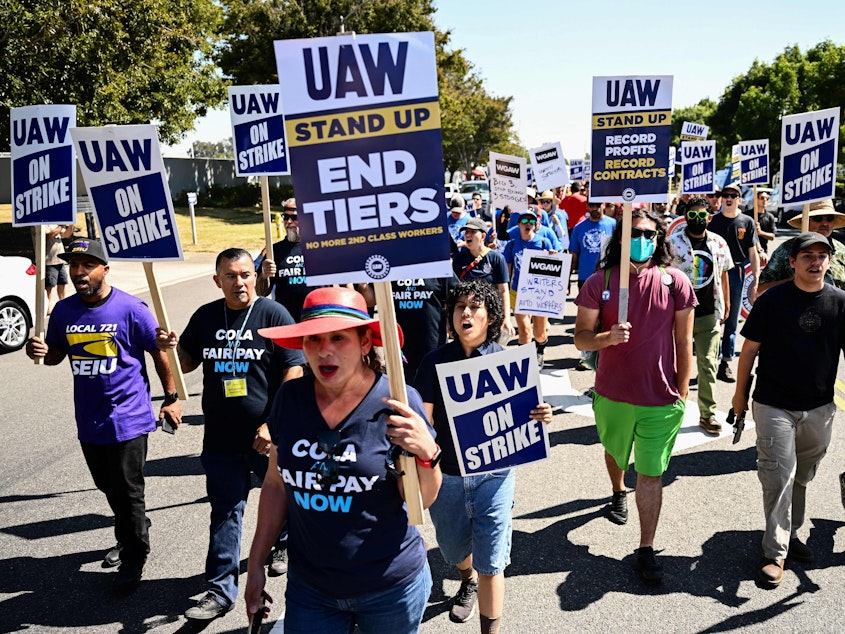UAW once again expands its historic strike, hitting two of the Big 3 automakers

The United Auto Workers is expanding its historic strike against General Motors and Ford by adding two additional assembly plants, ramping up pressure on the companies to come to a new contract deal.
Workers at Ford's Chicago Assembly Plant and GM's Lansing-Delta Assembly Plant are set to walk off their jobs at noon, barring any surprise negotiating moves from the targeted automakers.
Surprise moves are not out of the question. The announcement of strike targets by UAW president Shawn Fain was delayed by nearly half an hour — because, Fain said, just "moments before the broadcast" Stellantis made a significant offer that persuaded the union to spare the company from the strike expansion.
Ford's Chicago plant builds the Ford Explorer, the Lincoln Aviator and police vehicles, while GM's Lansing-Delta plant assembles the Buick Enclave and Chevrolet Traverse. A stamping plant at Lansing will not be shut down.
The plants employ around 7,000 people, which would bring the total number of striking workers to around 25,000.
Sponsored
The automakers' most profitable vehicles, full-size pickup trucks, continue to be unaffected, and the plants that would have the biggest ripple effects on supply chains are also not yet targets for work stoppages.
An unprecedented and unusual strike action
The UAW went out on strike against Ford, GM and Stellantis two weeks ago, the first time in the union's history it targeted all three companies at once.
In another unusual move, the strike started small – just three assembly plants, leaving most of the automakers' production untouched.
A week later, the union expanded the strike to the parts distribution centers of GM and Stellantis – but not Ford, citing significant concessions Ford had been willing to make at the bargaining table.
Sponsored
The strategy, which the UAW describes as a "stand-up strike," is intended to ramp up pressure on the automakers gradually, instead of having all of the nearly 150,000 UAW auto workers walk off at once.
The year of labor
The UAW's strike comes at a time of heightened union activity across the U.S.. with some workers winning big new contracts, including UPS drivers and airline pilots.
Hollywood actors are also currently on strike, while Las Vegas hospitality workers and Kaiser Permanent health care workers are threatening to walk off their jobs.
The UAW is demanding substantially higher pay and benefits, arguing they gave up a lot of concessions to help keep automakers afloat before and during the 2008 financial crisis. The Big Three companies have argued that meeting the union's demands would jeopardize the investments they need to transition to electric vehicles and make it impossible to compete with non-union rivals.
Sponsored
The UAW's strike, centered in the pivotal swing state of Michigan, is also a political flash point. President Biden made an unprecedented visit to the picket line on Tuesday, endorsing the union's demands, including their push for a 40% raise over the next four years.
Meanwhile former president and Republican front-runner Donald Trump spoke at a non-union auto plant on Wednesday, where he criticized the transition to electric vehicles.
The UAW supports electric vehicles, while demanding more requirements for EVs and their components to be built in the U.S. with unionized labor. [Copyright 2023 NPR]



